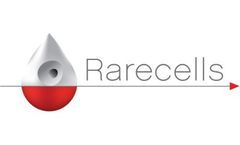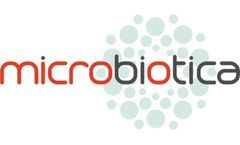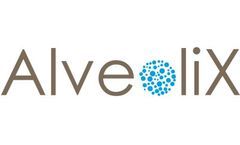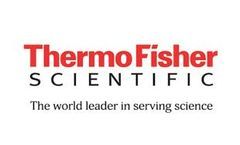Refine by
In Vitro Test Articles & Analysis
29 news found
The Food and Drug Administration’s (FDA) recent Roadmap to Reducing Animal Testing in Preclinical Safety Studies marks a pivotal shift toward the adoption of innovative, human-relevant methodologies commonly known as New Approach Methodologies (NAMs). As leaders in preclinical research tools, we welcome this movement towards advanced and validated NAMs solutions already in place. emka ...
Preclinical development Creative Diagnostics provides in vitro biology, in vivo pharmacodynamics, PK/PD, toxicology and formulation development services that enable clients to make decisions about drug candidates, advance the development process and reduce future time and costs. The company's capabilities include HTS, in vitro microbiology, antimicrobial synergy ...
In vitro diagnostics (IVD) are tests done on samples such as blood or tissue for the purpose of detecting diseases or other conditions. ...
In collaboration with renowned research institutions, CD Formulation has created an in vitro cytotoxicity testing platform specifically designed for microspheres and microneedles. ...
In addition to microsphere mass production, CD Formulation has expanded its expertise to include analytical testing, formulation development, stability testing, in vitro cytotoxicity testing, and ...
This critical step in the drug development process refers to the systematic evaluation of the safety of therapeutic drugs through laboratory studies and animals in vitro. Alfa Chemistry has established a drug safety evaluation system that meets international standards, helping clients to shorten the experimental time and reduce the cost as well. ...
CD Formulation provides detailed stability testing options for microspheres, including organic solvent resistance test, acid resistance test, alkaline resistance test, and accelerated experiment test. ...
It is significant to ensure that the detection is independent of viral concentrations and dependent only on the concentration and potency of tested sera. Therefore, it is important to accurately identify the infectious units of each virus with clear readings without exceeding the limited number of antibodies, which can be achieved by testing different viral ...
Its PROTAC in vivo evaluation services encompass general studies of toxicology and in vivo pharmacokinetics, tests of allergy and in vitro hemolysis, as well as immunotoxicology analysis. ...
” Creative Diagnostics combines infection and analytical expertise to provide its global clients with the strongest portfolio of antiviral and antimicrobial in vitro testing services. Confronting the growing demands for new antiviral and antimicrobial compounds as treatments for infectious diseases, Creative Diagnostics spares no effort to ...
These results solve the critical issue of CTC rarity and pave the way for their use in early diagnostics of cancer, prognostics, theranostics, and in vitro personalized drug efficacy tests, including through CTC culture. ...
Theoretically, the 50% cytotoxic concentration (CC50) is the concentration of test compound required to reduce cell viability by 50%. Cytotoxicity of test compounds is best determined simultaneously with uninfected cells to obtain a 50% cytotoxic concentration (CC50) value. Cytotoxicity tests use proportionally increasing concentrations of the ...
About FoundationOne®Liquid CDx FoundationOne Liquid CDx is a qualitative next generation sequencing based in vitro diagnostic test for prescription use only that uses targeted high throughput hybridization-based capture technology to analyze 324 genes utilizing circulating cell-free DNA (cfDNA) isolated from plasma derived from anti-coagulated peripheral ...
In-network coverage of FoundationOne CDx and FoundationOne Liquid CDx testing will support broader access to precision cancer care and may lead to lower out-of-pocket costs for patients who receive any such testing in accordance with their TRICARE policy. ...
There is an intense need for more accurate screening methods during preclinical studies using in vitro assays that more closely mimic in vivo conditions. Currently, only 12% of drugs that begin phase 1 clinical trials move on to eventually receive FDA approval. ...
The bacteria also demonstrate multiple immuno-stimulatory mechanisms in primary human immune cell assays, leading to Cytotoxic T Lymphocyte activation and tumour cell killing in vitro. Clinical testing of MB097, in combination with anti-PD1, will begin in 2022 with a Phase 1b study conducted in the same melanoma patient population that the microbiome signature ...
MB097 is a consortium of bacteria at the core of the microbiome signature predictive of patient response to Immune Checkpoint Inhibitor therapy Data show potent anti-tumour efficacy in vivo and in vitro MB097 is in manufacturing process development for Ph1b study expected to start next year MB097 is the first microbiome precision medicine in immuno-oncology, clinically ...
When researchers develop a drug or study a disease in the lab, they use models and conduct in-vitro tests using, for example, petri dishes, or rely on animal testing. The test results are usually very limited, and the success rate for drug tests of the lung is less than 3%. ...
Mesa Biotech has developed the Accula System, an affordable, easy-to-use, point-of-care PCR-based testing platform for infectious disease diagnosis. The platform enables rapid, highly accurate testing at physician offices, pharmacies and other settings, providing results in 30 minutes. Beyond COVID-19 testing, Mesa Biotech's existing platform ...
The BioPoly surface properties are similar to cartilage; therefore, the frictional forces between BioPoly and cartilage are nearly the same as that of cartilage on cartilage. In vitro testing results indicate that BioPoly material is more “cartilage-friendly” than metallic implant materials, causing significantly less cartilage wear. ...












